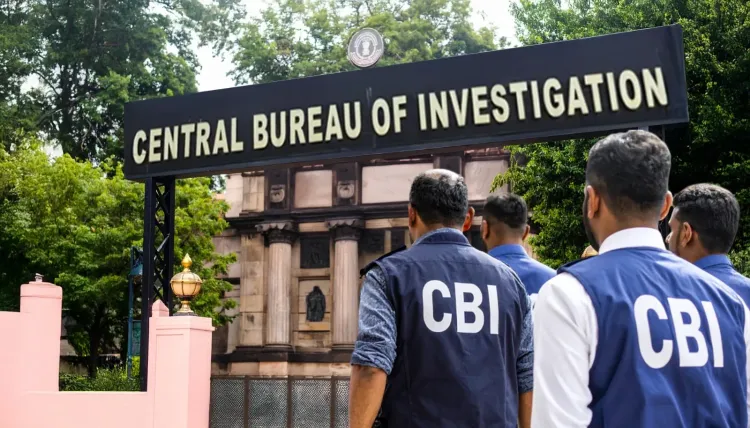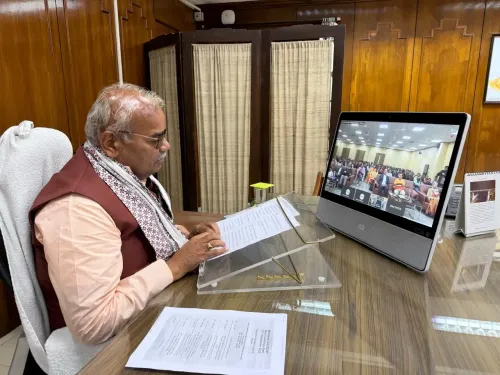How Did Operation Chakra-V Lead to a Major CBI Crackdown on Cyber Fraud?

Synopsis
Key Takeaways
- Operation Chakra-V is a crucial initiative by the CBI to combat cybercrime.
- Over 850,000 fraudulent mule accounts have been uncovered.
- Raids were conducted across five states, leading to nine arrests.
- Scams involved include impersonation and fake investment schemes.
- Banking regulations were violated, necessitating stricter adherence to guidelines.
New Delhi, June 26 (NationPress) In a significant nationwide effort against organized cybercrime, the Central Bureau of Investigation (CBI) executed synchronized raids at 42 locations across five states: Rajasthan, Delhi, Haryana, Uttarakhand, and Uttar Pradesh as part of its ongoing anti-cybercrime initiative, Operation Chakra-V.
This operation aimed to dismantle a network of 'mule bank accounts' that cybercriminals exploited to illegally transfer funds from unsuspecting victims.
The CBI has apprehended nine individuals, including intermediaries, agents, account holders, and bank correspondents, who allegedly facilitated the establishment and management of these fraudulent accounts.
During the raids, officials confiscated incriminating documents, digital evidence, mobile devices, and records related to the accounts.
According to the agency, over 850,000 mule accounts have been discovered across more than 700 bank branches nationwide. These accounts were reportedly created in breach of fundamental banking regulations, utilizing incomplete or counterfeit Know Your Customer (KYC) documentation, insufficient customer due diligence, and without any preliminary risk assessments.
The agency stated, 'Branch managers failed to perform Enhanced Due Diligence concerning certain suspicious transaction alerts generated by their systems. Some banks did not send acknowledgment letters to customers, which could have helped verify the addresses of account holders.'
'Guidelines outlined in the RBI Master Circular and various internal bank protocols have been contravened,' it added.
Currently, an FIR has been lodged under sections of the Indian Penal Code, including cheating, forgery, and criminal conspiracy, as well as provisions of the Prevention of Corruption Act for alleged misconduct by bank officials.
The fraudulent accounts were purportedly utilized in various crimes such as digital arrest scams, impersonation frauds, fake investment schemes, and UPI-based scams.
These scams typically involve deceiving victims into transferring money under false pretenses. The detained individuals are being presented in court, and further investigations are ongoing to identify additional suspects and uncover systemic vulnerabilities.









